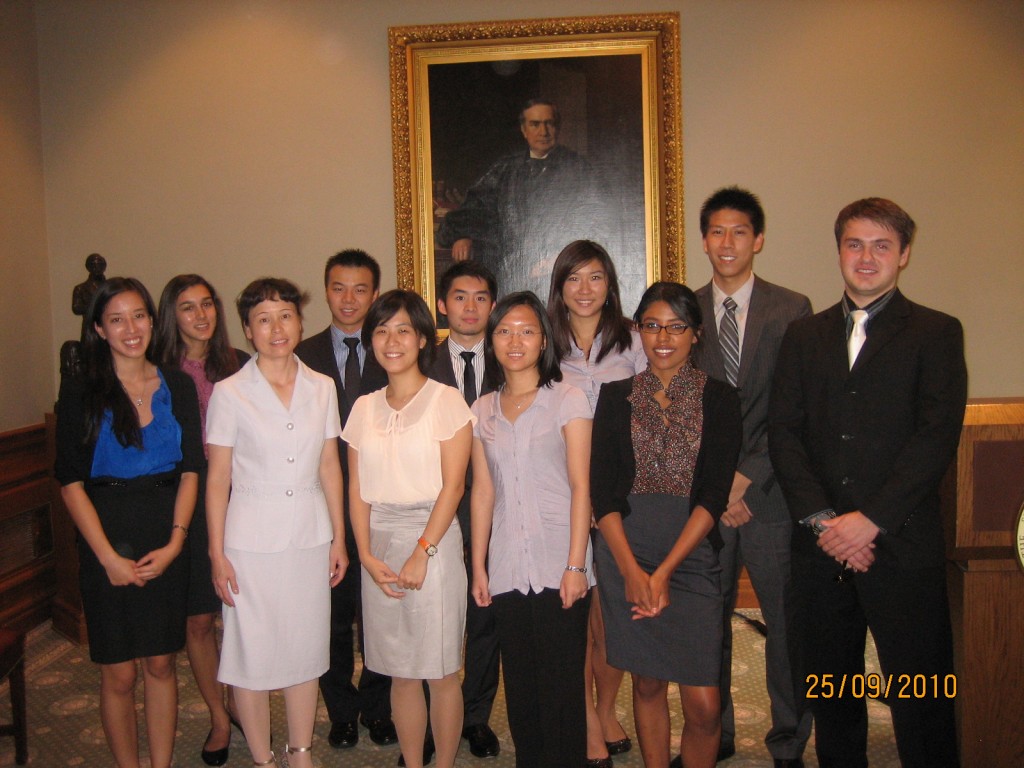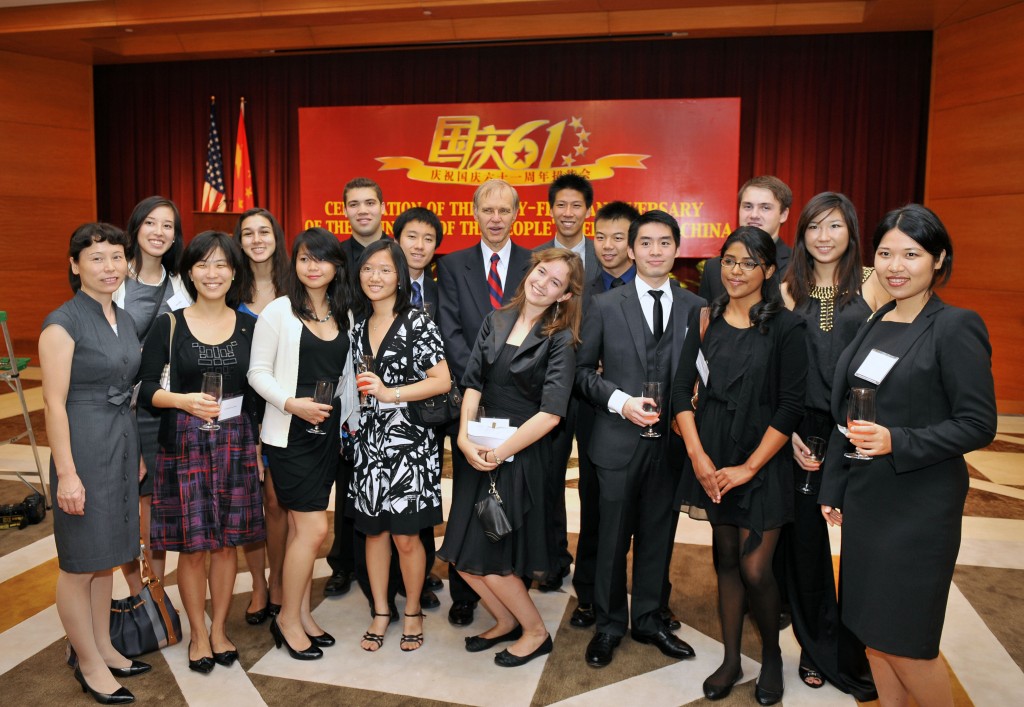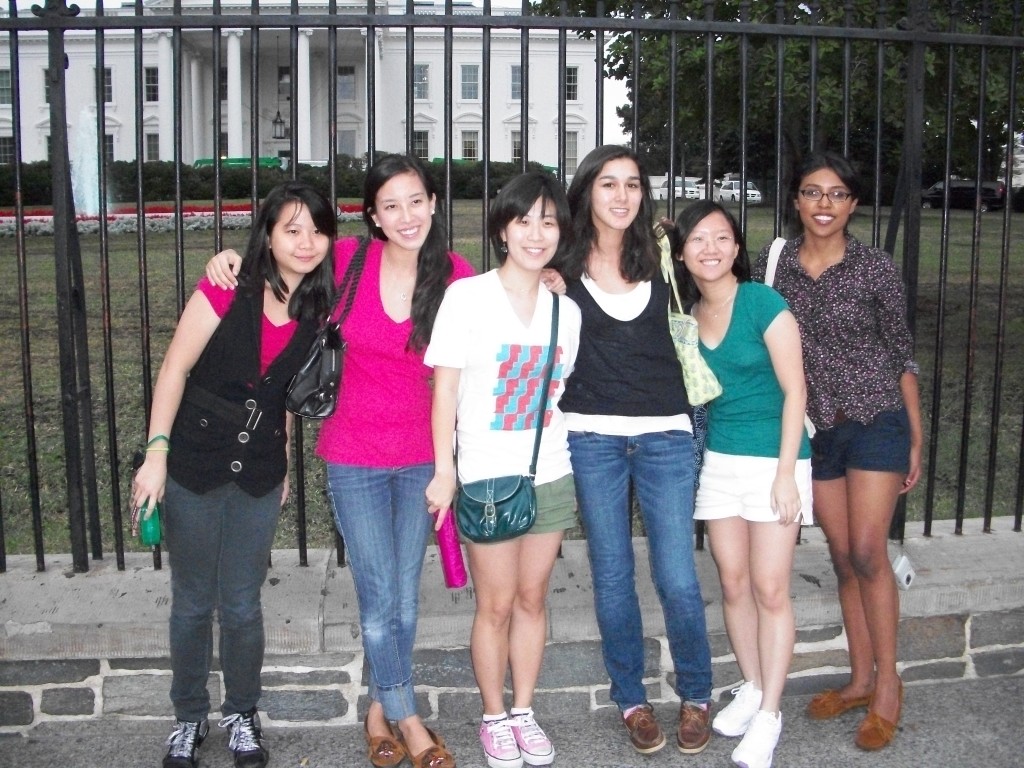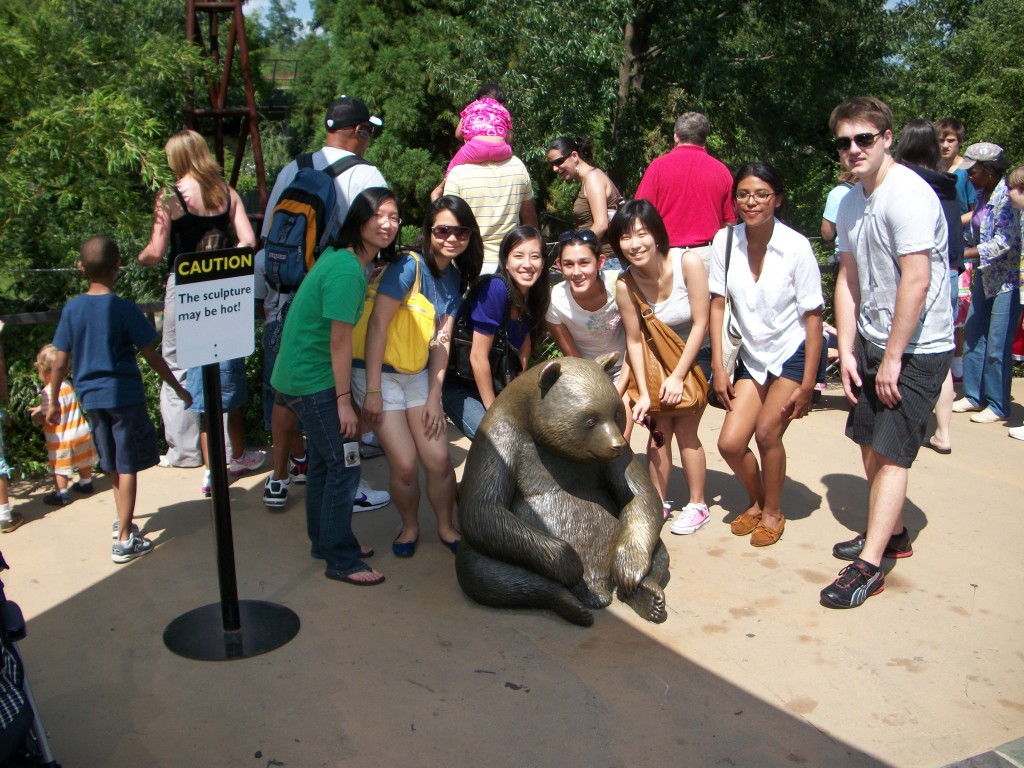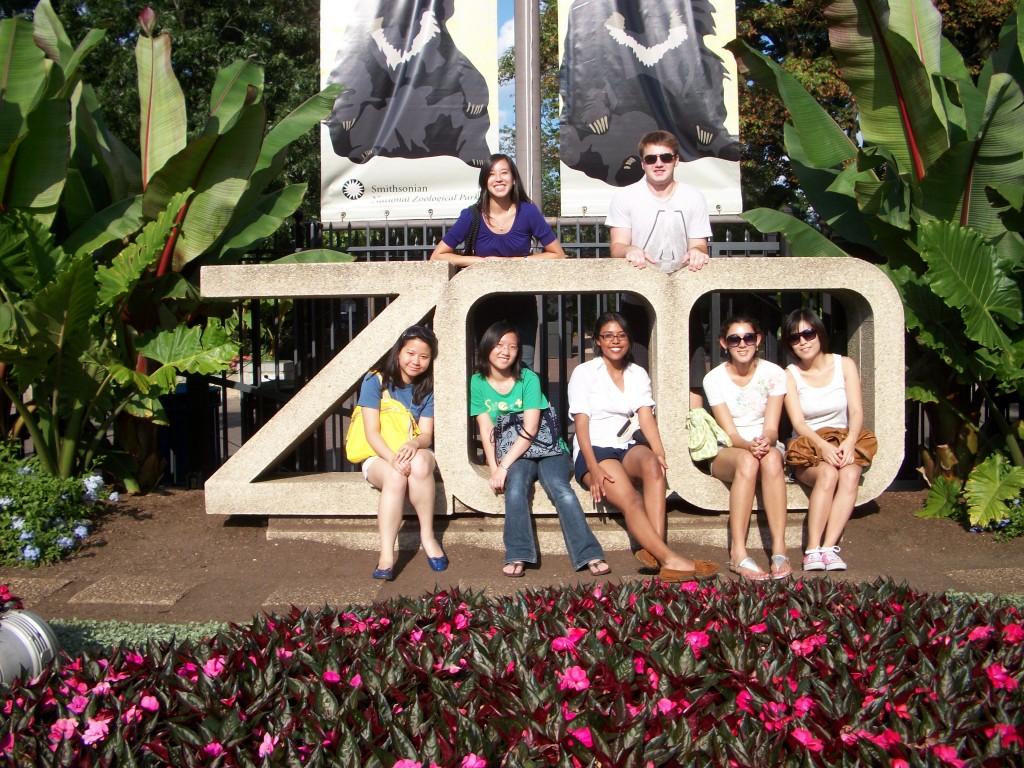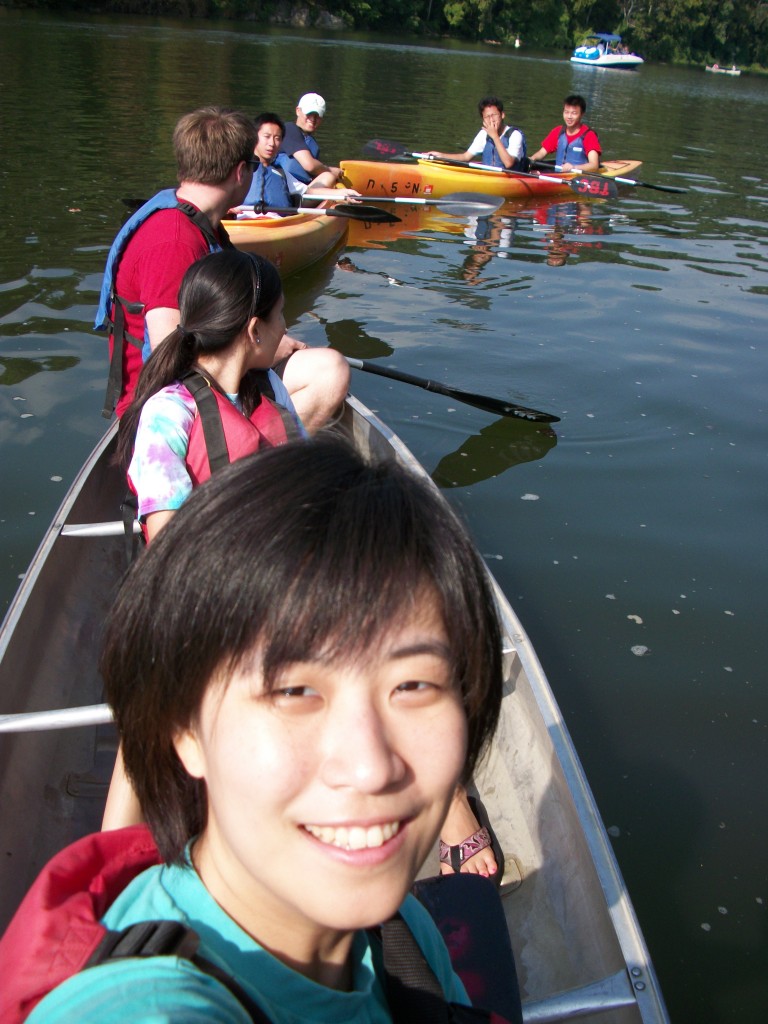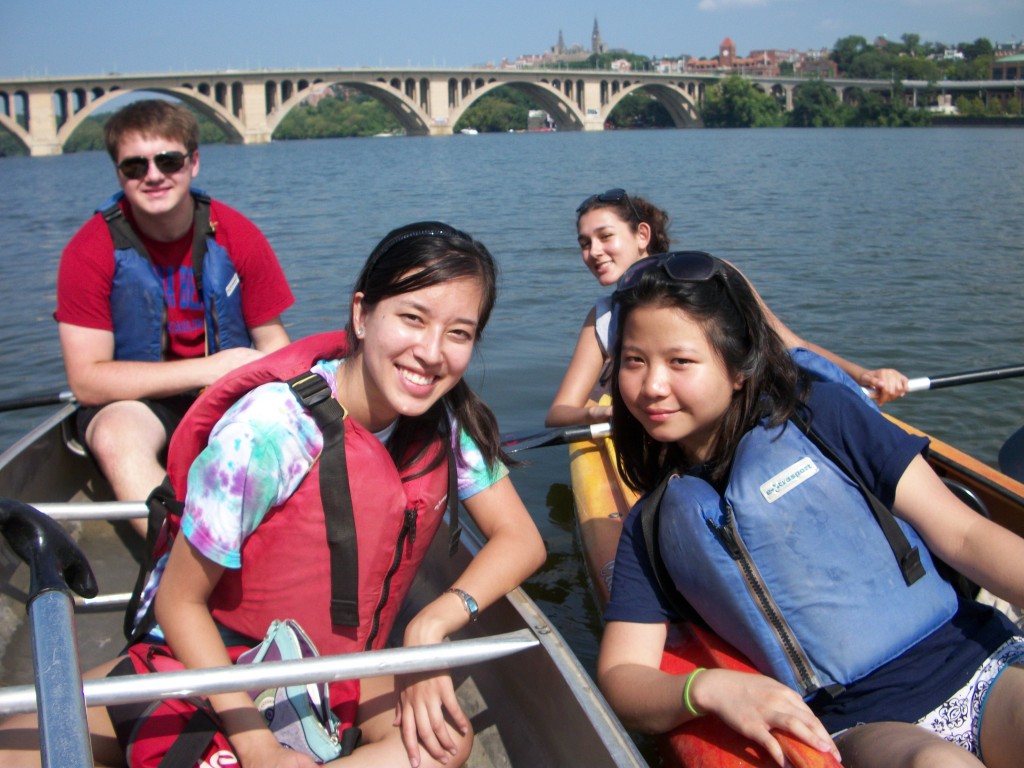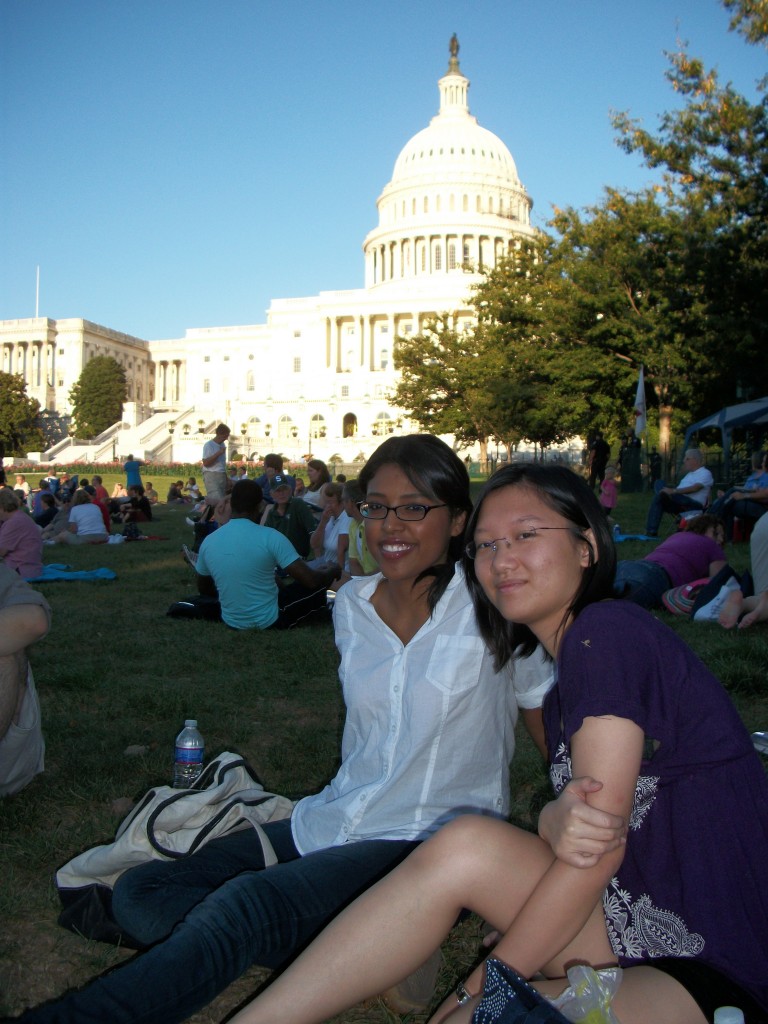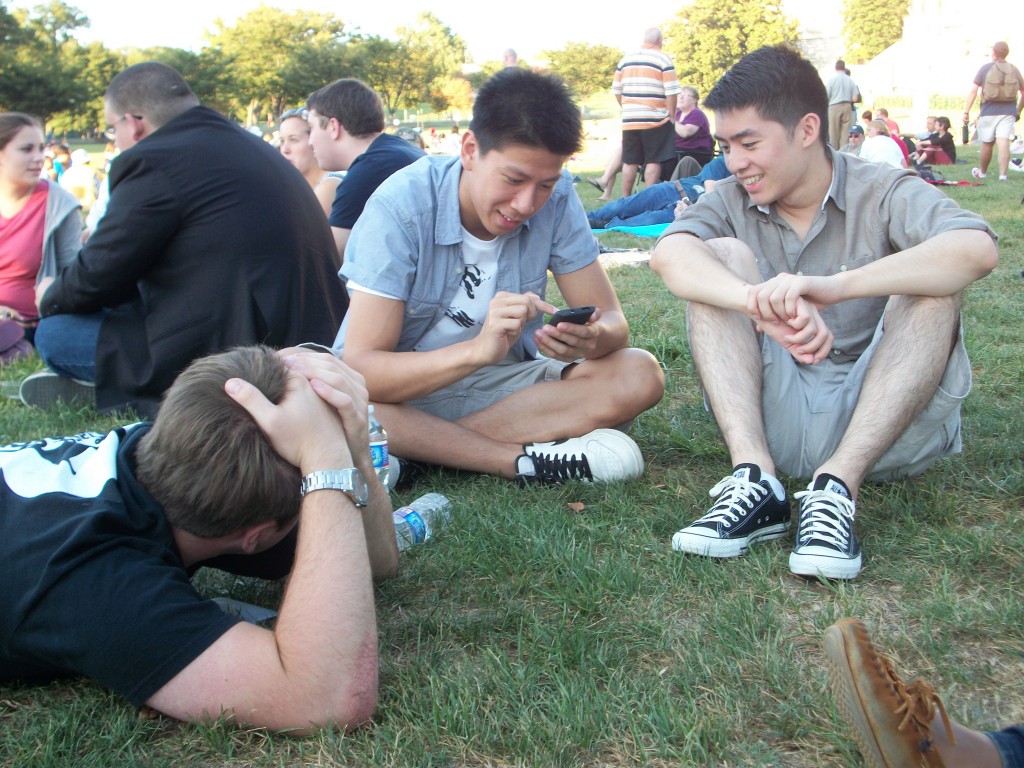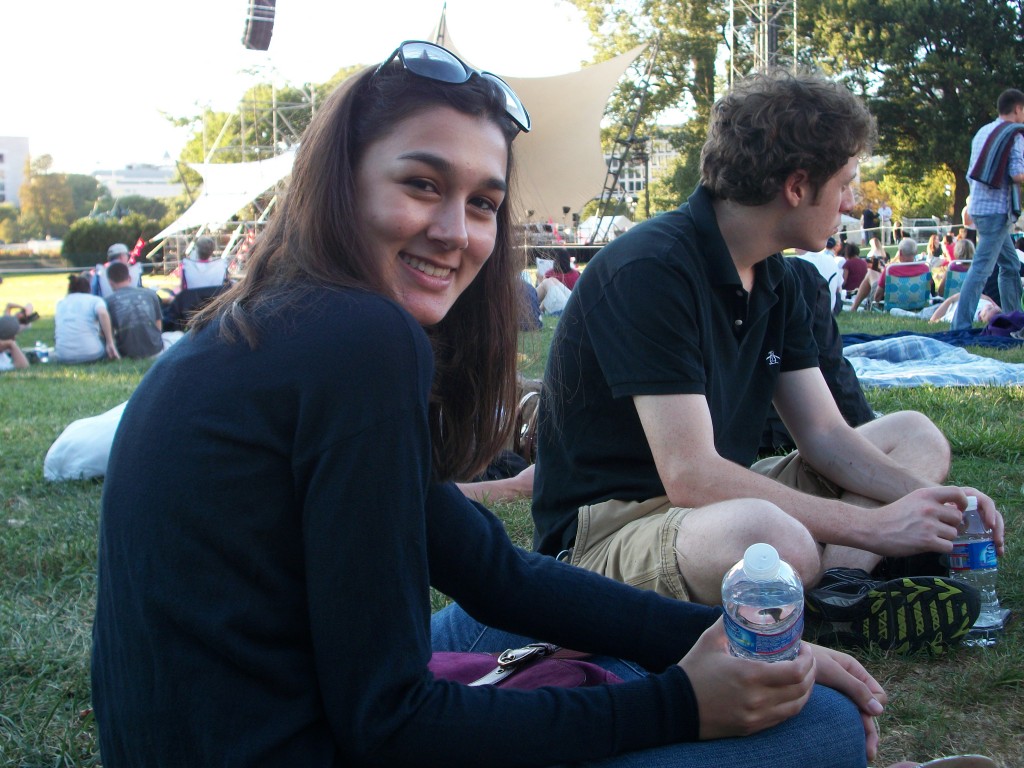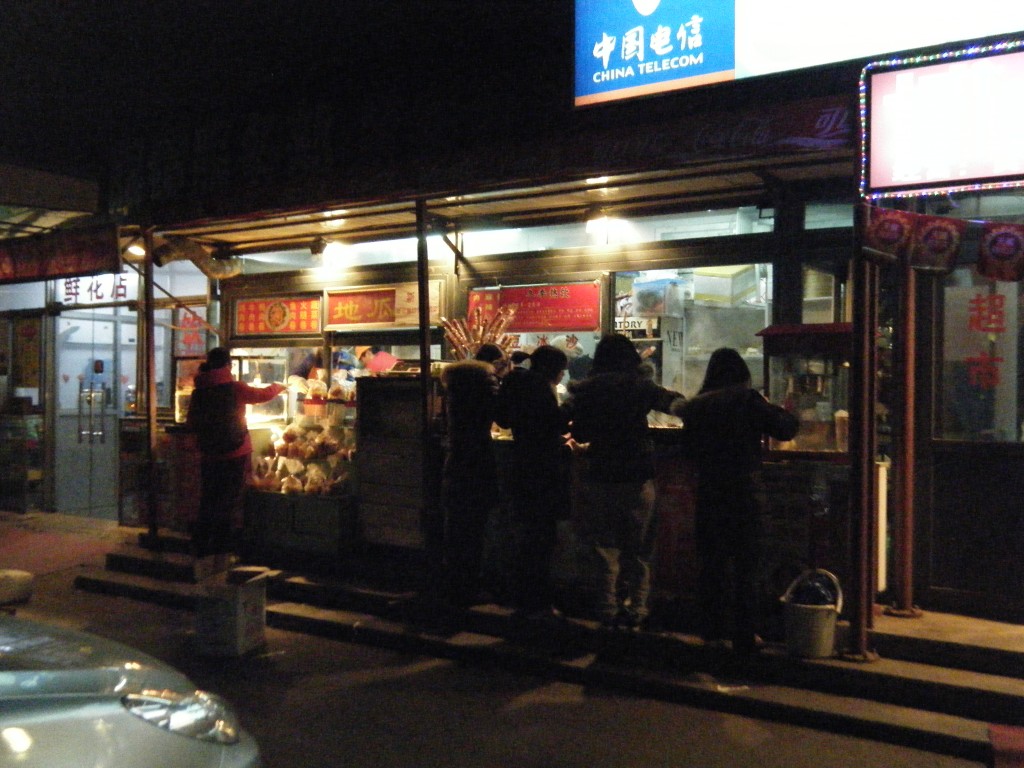Secretary Clinton’s challenge, the 100,000 Strong Initiative, and more
Secretary of State Hillary Clinton recently issued a letter challenging American universities to double the number of students they send to China for study by the year 2014. Read her letter here: http://www.iie.org/en/Who-We-Are/News-and-Events/Press-Center/2011-1-10-100000-Strong
Secretary Clinton hopes that this measure will aid in the achievement of the Obama Administration’s “100,000 Strong Initiative,” an effort launched in May of last year to eventually increase the number of American students studying in China to 100,000. In 2010, the number of American students studying in China was a paltry 13,000. Did you know that 600 times more Chinese study the English language than Americans study Mandarin? (Read more about the 100,000 Strong Initiative here: http://www.state.gov/p/eap/regional/100000_strong/index.htm)
In a recently published HuffPost column, Dori Jones Yang writes that:
“…[D]espite the surge of interest in Chinese, the numbers are still minuscule. About 4 percent of U.S. middle and high schools offer Chinese, according to a recently released survey by the Center for Applied Linguistics, up from only 1 percent since 1997. But that’s about the same as the number of schools teaching Italian. And 93 percent of all U.S. secondary schools offer Spanish. In 2010, more than 6,000 American students took the Advanced Placement exam in Chinese — a 25 percent jump from last year. But that’s tiny compared to the 118,000 who took the Spanish language AP exam.
The number of Americans studying in China jumped 19 percent in 2007-08 and 4 percent in 2008-09. But last year’s total, more than 13,000, represents only 5 percent of all Americans studying abroad. And it is dwarfed by the number of Chinese students in the United States: 128,000 in 2009-2010, up 30 percent from the previous year.”
(Full article at: http://www.huffingtonpost.com/dori-jones-yang/new-years-resolution-stud_b_801990.html)
Interestingly, Yang’s column was published the same day as the immensely popular Nick Kristof article “Primero Hay Que Aprender Espanol, Ranhou Zai Xue Zhongwen,” which blew up the blogosphere after Kristof argued that Spanish is the foreign language of primary importance for Americans, with Chinese coming in as runner-up. (Full article at: http://www.nytimes.com/2010/12/30/opinion/30kristof.html?_r=2&ref=nicholasdkristof) Most of his readers agreed with him. Your thoughts?
Dinner on the Town with CAPS (VIDEO)
We all loved our Chinese teacher, Asst. Prof. Gao Huiyi of East China Normal University, and had a great time getting to know her this semester! Here’s most of CAPS 2012 with Gao Laoshi on Sept. 10, 2010 (Teacher’s Day in China):
Cornell in Washington photos – Round 2!
(Above) CAPS 2012 at the Supreme Court. Cornell in Washington students had the opportunity to have a private Q&A session with Justice Ruth Bader Ginsberg, Cornell alumna.
(Below) CAPS 2012 at the Chinese Embassy, celebrating the 61st anniversary of the founding of the P.R.C., with Professors Richard Bush and Gao Huiyi, and CAPS Assistant Director Wang Haiyan. CAPS students also had a chance to meet, chat, and shake hands with Admiral Mike Mullen (Chairman of the Joint Chiefs of Staff) among other distinguished guests. [Photo courtesy of Xinhua]
Cornell in Washington photos – Round 1
Countdown to Washington!
Rising CAPS juniors have only a few more days before starting their Cornell-in-Washington semester! Move-in begins on Sunday the 22nd and classes start the following Wednesday.
Stay tuned in coming weeks as the juniors blog about moving in, life at the center, internships and classes. Photos to come soon!
In the meantime, stay classy : )
End-of-Semester Updates and Congrats to the Class of 2010!
CAPS 2010 Commencement and the 5th Anniversary of the CAPS Major at Cornell have come and gone, and the CAPS Classes of 2011, 2012 and 2013 would like to wish this year’s seniors the best of success in their future endeavors.
The CAPS Class of 2010 is:
Jonathan Delikat | 狄家盛
Nicholas Elser | 欧阳易
Renee Heyman | 王莉玲
Minerva Ho | 何弥菜羽
Hai Jack Huang | 黄海
Andrew Kang | 康震东
Seo Hyum Kim | 金瑞贤
Caitlin McCulloch | 麦凯琳
Tianyue Qu | 瞿天悦
Adi Robertson | 罗婉仪
Tatiana Robinson | 谭那
Eli Silverstein | 石乐乐
Matthew Silverstein | 史明修
Eric Tao | 陶晨
Pwin Tuntasood | 唐文朴
GOOD LUCK, EVERYONE!
To read about May’s commencement celebration, please visit: http://www.einaudi.cornell.edu/caps/news/headlines.asp?id=2315
And here is a recent (and perhaps the last) photo of the Class of 2010 together with CAPS underclassmen:
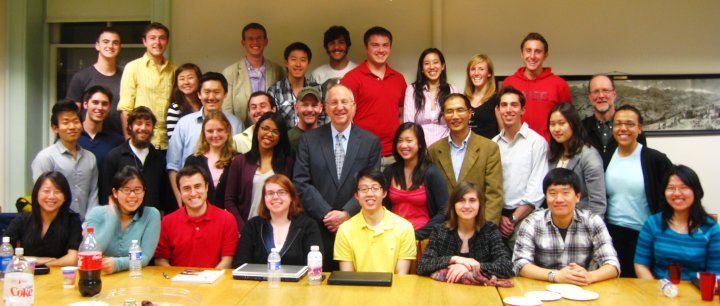
CAPS students enjoy an evening discussion with university President David Skorton, who visited with the CAPS program in April. Included in this photo are CAPS students from the Classes of 2010, 2011, 2012 and 2013, and CAPS faculty Xu Xin, Allen Carlson and Haiyan Wang.
CAPS students enjoyed an open discussion with the President about the future of the CAPS program, Cornell’s unique relationship with China and Peking University especially, and ways in which the University can continue to provide for Cornellians despite the current economic climate.
At the end of April, CAPS students participated in a round-table discussion with Adam Levinson ’92 and Michael Zak ’75, distinguished and long-time supporters of the CAPS program. CAPS students appreciated the opportunity to thank the individuals who help the CAPS program thrive. In particular, students enjoyed a Q&A session with Levinson about his financial and China-related expertise.
Also in April, CAPS students were invited to participate in an intimate discussion with Prof. Thomas Christensen, the director of Princeton University’s China & the World Program. Christensen, a long-time supporter of the CAPS major at Cornell, discussed the Obama administration’s approach to U.S.-China relations, answered questions from CAPS students and provided career advice. Prof. Christensen also visited with CAPS students for a career-related workshop during the 2008-09 school year.
In May, the Class of 2012 coordinated an information session about the CAPS program, collaborating with upperclassmen and faculty to make the event a success. The Class of 2010 provided insider opinions on the major at the meeting, giving future 2013 and 2014 class members an idea of what to expect. CAPS Director Xu Xin reminded CAPS majors of the importance of Mandarin proficiency and keeping apace with the challenges of the program. CAPS Prof. Chen Jian explained why the CAPS major is increasingly relevant–and will remain so–in future years.
Now that it’s summer, it seems that the breakneck pace of the CAPS program has come down to more manageable speeds, but the feeling is only temporary. The Class of 2010 is busy embarking on their new careers, and soon the Class of 2011 will be gearing up for Beijing and the Class of 2012 will be leaving for Washington. Congrats, everyone, on another great year!
Letters
3 weeks out of graduation, I’ve finally finished my last Cornell-related project (first alumni reunion orchestra performance!), and only have a couple of loose strings to tie together to tuck away College. The World Cup is in full swing, which means that even if the weather is beautiful, I am inside typing away on my computer, where I can watch the live stream from ESPN3 (thanks Nick!). I’m still in complete denial of being a newly minted alumnus and am getting (probably unnecessarily) sentimental and nostalgic. Which leads me to write thank you letters —
Dear parents, siblings, family, & people who give goodwill to Cornell and CAPS,
Thanks for putting us through this. Without you all and your consistent support, we wouldn’t be here. We also wouldn’t have gone to college, not just that last walk around the Arts Quad, the moment onstage at Barnes Hall, or the one last group picture on that bright, sunny day. We’re indebted to you all, and I hope we’ll soon be as generously supportive as you are for us.
Dear Profs. Xu Xin, Bush, Cochran, Chen Jian, Carlson, Mertha, McNeal, & our Chinese teachers,
Thanks for your patience in putting up with us and seeing us through the past four years. You all spent so much time on our behalf, not just in the classroom or office hours, but for meetings and seminars for the program, and for trips when you took us around D.C. and Shandong. We may’ve learned a thing or two from Edgar Snow and Francis Fukuyama (and Bob Ross JUST KIDDING we are mostly Katzensteinians through and through), but we learned so, so much more from you all.
Dear Duan Hong, Hao Xinmiao, Haiyan, and Darla,
Thank you so much for all the work you’ve put into keeping us and the program orderly! We’ve learned that universities are very complex and that China is very complex, but we have also learned that Chinese universities are very, very, very complex. If you guys didn’t simplify the complexities, I’m pretty sure there would’ve been a riot, which would’ve been very undiplomatic and completely against the CAPS mission.
Dear Classes of 2008 & 2009,
Thanks for all your advice and your candor. We really were lucky to be able to look up people as great as you guys, to have someone who’d show us around their version of Beijing. It was awesome to be with you guys in Ithaca and Beijing, and I certainly hope our paths will cross many more times in other cities.
Dear Classes of 2011, 2012, 2013+,
I haven’t had a chance to really get to know every one of you, but those I’ve met are all pretty fantastic and I have a hunch that you’re all pretty great people. You guys did a great job back in April with your project, and I hope you’ll keep doing it in the coming years, and that you won’t hesitate to approach us with questions, should there be any. Oh, and good luck trying to top us (Class of 2010) off on the awesome scale. Do you guys have it in you? I’d like to see you guys at least try. 🙂
And, last but not certainly least:
Dear Class of 2010,
We’ve fought over the seminar table for the best seats in Professor Bush’s class (Professor, did you know that some of us would arrive 20 minutes early, just so we can see you AND your slides without giving ourselves a neck muscle workout?), and with 叶老师,we’ve cooked pans upon pans of dumplings together. Aside from our many potlucks, we traipsed around D.C.’s museums and culinary offerings, and some of you were more adventurous and hunted down the city’s best 4-month fitness center deal. We braved the streets (and traffic) of Beijing, shared plates upon plates of food (lots of broccoli) from the Lanzhou restaurant, and ordered beverage upon beverage at SanlitunR. We worked together and provided half the manpower for the American booth at the International Culture Festival, and then travelled to Shandong for a weekend of temples, Qingdaos, and of course, the Gou-le man. We (okay, mostly Matt/Nick/Jon/Pwin) paddled out on Kunming Lake on one of the most beautifully cloudless days of the semester and scaled the Great Wall (Scott, how you did it with a cigarette in hand is still a mystery to the rest of us), where we drew some heads with our photography project. We’ve haggled for the best prices on name chops (Christine, you totally take the cake on this one), deliberated the name of the Inaugural Beijing Scavenger Hunt biking gang (too bad half the tires were blown), and kicked around jianzi with our alums (hey Max&Max/Andrew/Justin/Liz!). We woke up at scandalous hours for Chinese class and walked through deep snow, shivered in our dorm rooms on our very firm beds (very, very firm), mooched wireless signal from 4-402, and got in touch with our childhood past by building, un-building (dismantling?), and trying to build again a (faux) Lego helicopter. While we have our individual differences (occasionally balancing and bandwagoning with each other) and come from a broad range of backgrounds and interests (ice cream, anyone?), the fact that we all gravitated towards the same major and spent hours working with each other so harmoniously goes to show how we are absolutely, positively, indubitably amazing. I had an incredible time with you guys, and feel truly, truly lucky to have had the chance to get to know you all.
What would’ve happened if I weren’t a CAPS major?
In the past month, I’ve been asking myself the question a lot. What would I have differently in my four years? How will the coming years be different? It’s a completely moot point, but sometimes, you can’t help but wonder. I imagine undergraduate decision-making to be a lot like 盆栽 (pén zai), the art form perhaps better known as bonsai, where the intial decisions you make is like pruning the branches of the tree, modifying the initial direction in which the branches grow, but not necessarily the ultimate spatial location of the branches.
If I weren’t a CAPS major:
1. I probably would not have gotten phone calls at 6:00 a.m. on Saturday mornings for the International Culture Festival. I had a lot of fun fundraising for the project and meeting new people, but man, 6:00 a.m. is way too early on a Saturday morning for a phone call. Looking back now, I think a large part of the reason why I got so involved (and received said weekend morning wake-up calls) was because I was doing for CAPS. I may have studied abroad in China, maybe even at Beida and worked at the Festival, but I don’t think I would have worked nearly as much without CAPS. Thanks to this experience, I am now an exceptionally efficient Superman cape maker who knows what it feels like to wake up after 3 hours of sleep to help set up on a Sunday morning, and who can also plaster a smile that same day and urge the apple-bobbers to 加油 while explaining the game’s rules in Chinese.
2. I wouldn’t have talked to as many older people in professional or social contexts. CAPS gave a lot of opportunities to meet with Cornell alumni in D.C. and Beijing in addition to academics and politicians with careers in U.S.-China relations. Meeting and greeting might feel unnatural at first, but when you do it over and over, you get used to it. I certainly think it helped me out a lot when I sat down with the business partners that own all of the Auntie Anne’s franchises in Beijing, and when I interviewed people decades older than me for research (Especially when I interviewed them in Chinese. You learn how many different ways people can speak Mandarin, it’s ridiculous.).
3. I would have been on significantly less adventures if it weren’t for CAPS. I’m not talking of just the trips that were organized by the program (Shandong!), but also of the side trips that I took with other students, and the occasional trips I ventured on my own. If it weren’t for CAPS, I wouldn’t have researched, and if it weren’t for the research, I would not have gone to conferences, one of which featured a dolphin show. So by the associative property, without CAPS, I may never have seen dolphins in Beijing.
4. I may have played more music cumulatively, if it weren’t for CAPS — every time I was away from Ithaca, I missed my friends, I missed my quartet partners, and I missed the orchestra. But when I was in China, if it weren’t for CAPS, I probably would have played less, and it if it weren’t for playing music at Beida, I wouldn’t have met half of my new friends in Beijing. After playing at Beijing University during the fall and at Loyola University in January, I truly, truly believe that sharing music is a great way to get a peek at cultural differences, whether it be on the other side of the International Date Line or the Mason-Dixon Line. Plus, I got to play new music. The Ode to the Red Flag is no Bartók’s Concerto For Orchestra, but it’s still music.
5. I’m not sure if I would have gotten to know as many driven, intelligent, and compassionate people as I have in the CAPS program. Cornell is populated with many people, many of whom are driven/intelligent/compassionate, but in CAPS, by really getting to know a smaller sliver of the population in academic and social environments, you can identify the different permutations of types of motivations, knowledge, and passions of your peers. It’s just awfully interesting, because some of us are incredibly different from each other (No, really, you’d be surprised), but we get along extremely well, and work well together, too.
I have no regrets about the decision I made spring of freshman year. This is in part because there is no point in regretting something that cannot be changed, but it’s mostly because I’ve been given many memories and opportunities and experiences from being part of the program, and also because I am still confident that it was the right decision for myself. The tree will be a tree; its branches may be askew, but it will keep growing, and it will be as strong as I will it.
Late Night Noshing
Finals have rolled around, and everyone here at Cornell (is mostly) studying. And writing. And studying, and writing, and finishing up projects, et al. This results in late nights, and with late nights, comes late night eats. I imagine typical students get something delivered from CampusFood.com, venture out to Collegetown Bagels, or go to the convenience stores out at Noyes or RPU, but I’m the type of college student that cooks more than she eats out, so whenever I get hungry, I usually eat some fruit I got at Wegman’s if I want something sweet, or I make ramen, mac & cheese, or a sandwich (usually grilled cheese or PB&J) if I want something savory.
In China, though, cooking was not an option. There aren’t any cooking areas in local student dorms, and the international students’ dorms have two hotplates and a large sink to call a kitchen. Yep, two hotplates. And a sink. If you’re in Beijing University and you want to consider cooking yourself because you’re craving spaghetti with a proper ratio of spaghetti sauce to spaghetti noodles, or, if you’re like my friend and want to make French onion soup, be sure to buy a pot made of metal. Out in a landfill located in the peripheries of Beijing, there may or may not be a beer can with a hole burnt on the bottom because the ceramic pot didn’t work for the aspiring cooks.
Anyway, I digress. Because the cooking facilities leave much to be desired, and more importantly, because eating out is so incredibly cheap on campus in China, it makes more sense to eat out. If you’re too lazy to venture off campus, you have 3 options at Beijing University:
1. The eateries located in the dining complex of the campus, right in front of the bathhouse and 学五食堂. Here, you can get hot vegetables and fishballs skewered and cooked in spicy broth (麻辣烫) for 0.5 kuai a skewer. Some people question the sanitation, but when I ate there, I thought it was delicious and walked away unscathed, save my tongue, which got burnt on the hot broth. If you want to opt out of the skewers, though, there’s always 烤地瓜, or roasted sweet potatoes, and the infamous (among CAPS majors) 鸡肉卷, or chicken wraps. 鸡肉卷 is basically a fried doughy pancake with a leaf of lettuce, miscellaneous soy-based sauces, and several pieces of fried chicken, harkening back to KFC back at home. The place that sells the 鸡肉卷 have other wraps, so knock yourself out. There’re also fruit stands inside the building, behind this strip of stands — reputedly the cheapest place to get fruit in the entire campus because it’s so hidden away from the others.
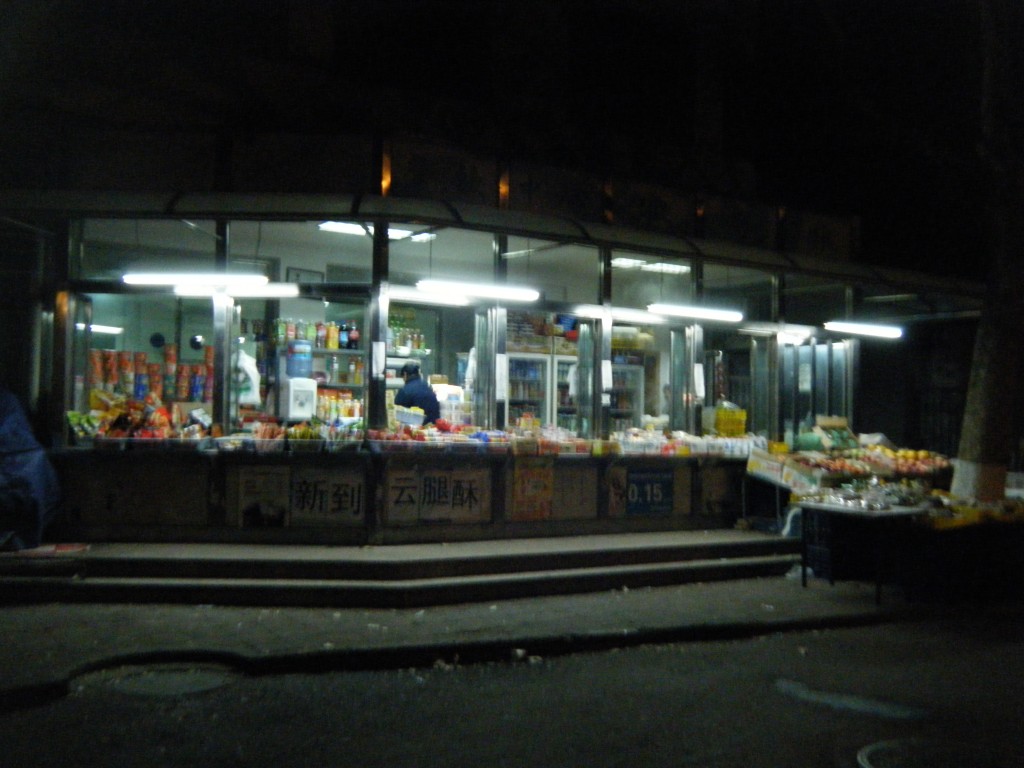
2. Outdoors convenience booth located across 面条食堂. There’s a larger convenience store called 物美, much closer to the foreign student dorms, but if you want to get away from your room for a brisk walk, go here, where snacks are slightly cheaper than the snacks at convenience stores. Here, you will also discover almost-frozen Oreos (when you’re out late at night in December), which I think have their own merits.
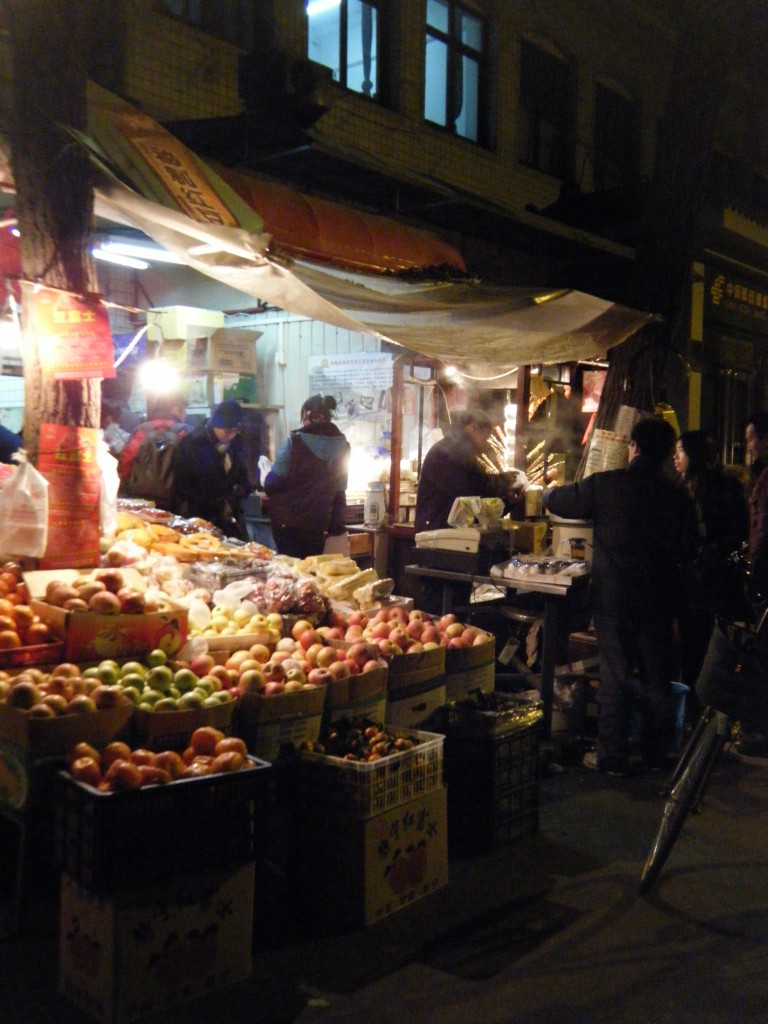
3. 3. If the former two locations don’t satisfy your taste buds, and you’re hankering for something more densely packed with carbohydrates/want to procrastinate 5 more minutes, then you’ll have to walk down the road to this 小铺子, located right next to , where there’re Chinese buns (包子) and sticky rice filled with savory proteins (粽子), along with standard convenience store fare and fruit.
Chinese Science Fiction
“Science fiction was imported from the West early in this century by some Chinese elites who believed that the genre could help people become ‘intelligent’ and enable the country [to] get modernized.” -Han Song
Science Fiction, Globalization, and the People’s Republic of China
It’s a good, albeit Comic Sans-y article, and one that identifies one of the key issues you have to deal with if you’re going to do China studies or SF: The inescapable connection between science fiction, Chinese development, Enlightenment thinking, and the West. It’s like how if you’re going to do modernization, you’ve got to do westernization too. The question is whether science fiction is used as a means of imitating the West, or if it’s also a form of deconstruction, a way of dealing with imposed (or at least ever-present) Western norms.
One thing I haven’t been able to find out much about yet is the apparent ban on science fiction in the early eighties–everyone alludes to it, but there doesn’t seem to be information in English about why it happened, or what it meant in practical terms: If I recall correctly, there may have been a similar ban a year or two back on horror films around the time of the Olympics, so I’m guessing it’s a similar deal to that.
The Chinese-language web might have something about it–I bet someone has posted about it on one of the sci-fi blogs–but my Chinese google-fu is pretty weak, especially when I’m dealing with things I don’t know the precise term for. I believe the ban went under the name of an anti-spiritual pollution (精神污染) campaign, but I’m not sure if there was a particular name for it or not.
(Cross-posted at Cyberpunks Not Dead)
« go back — keep looking »
